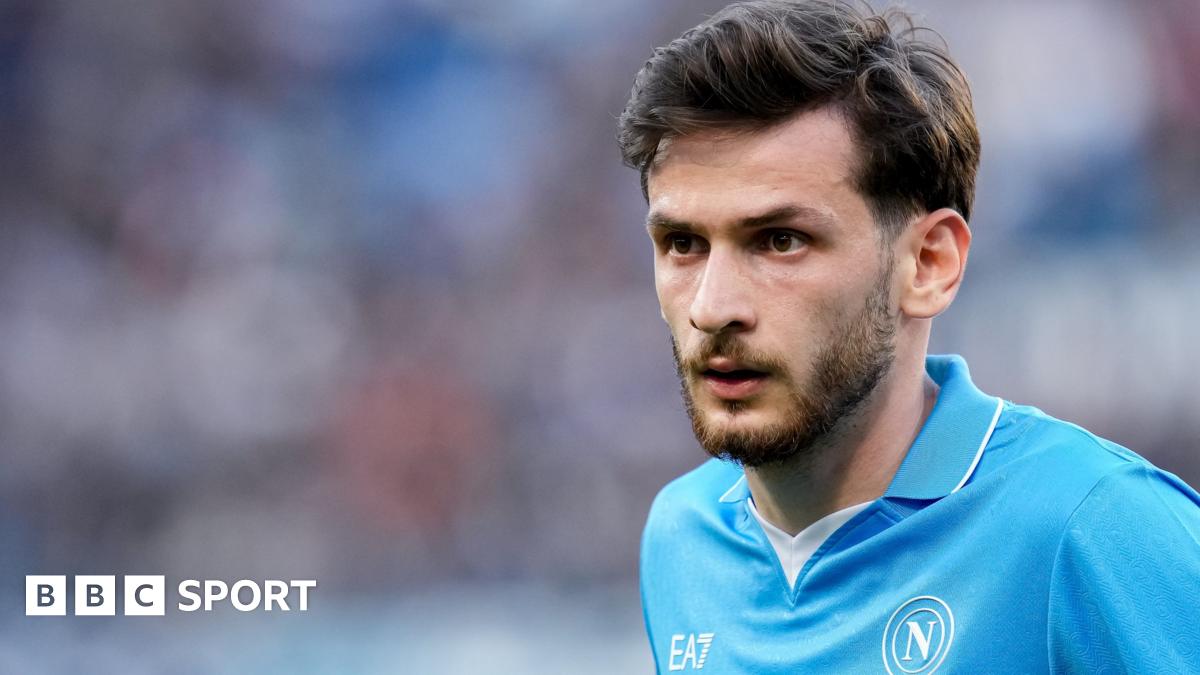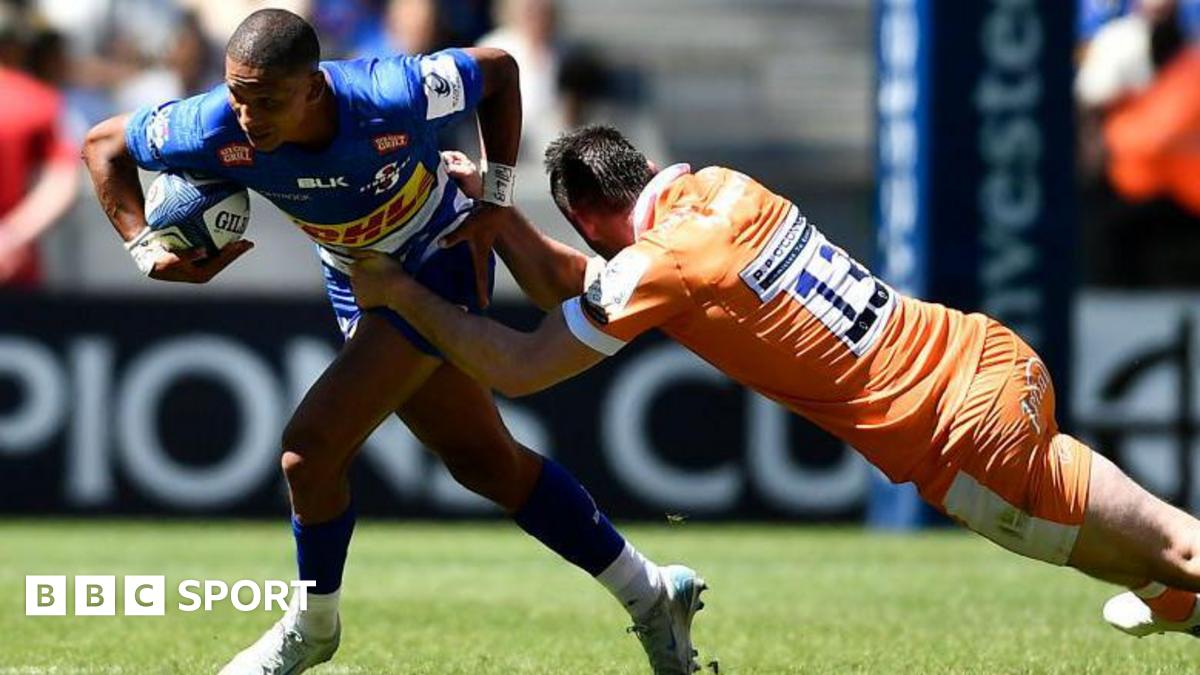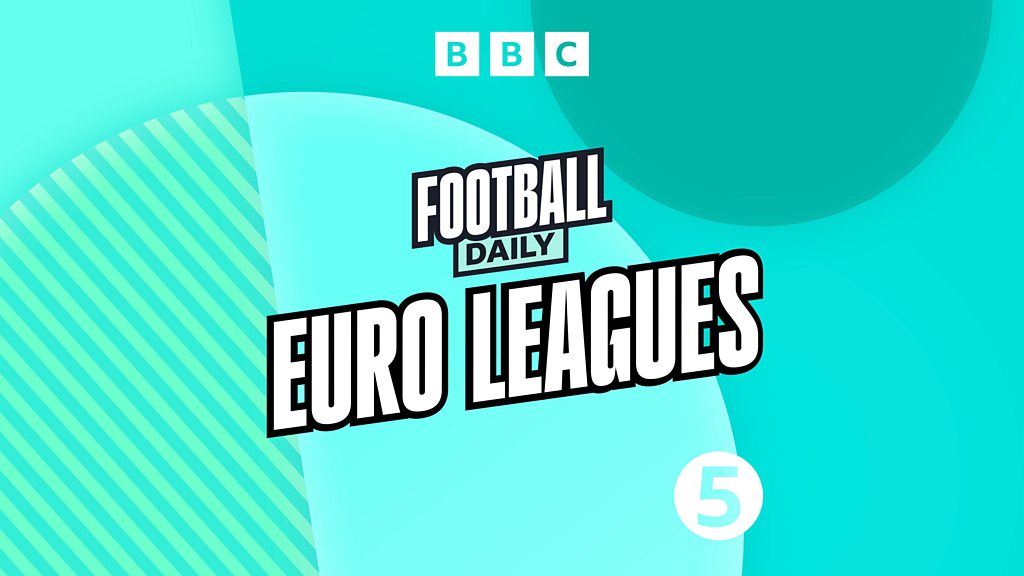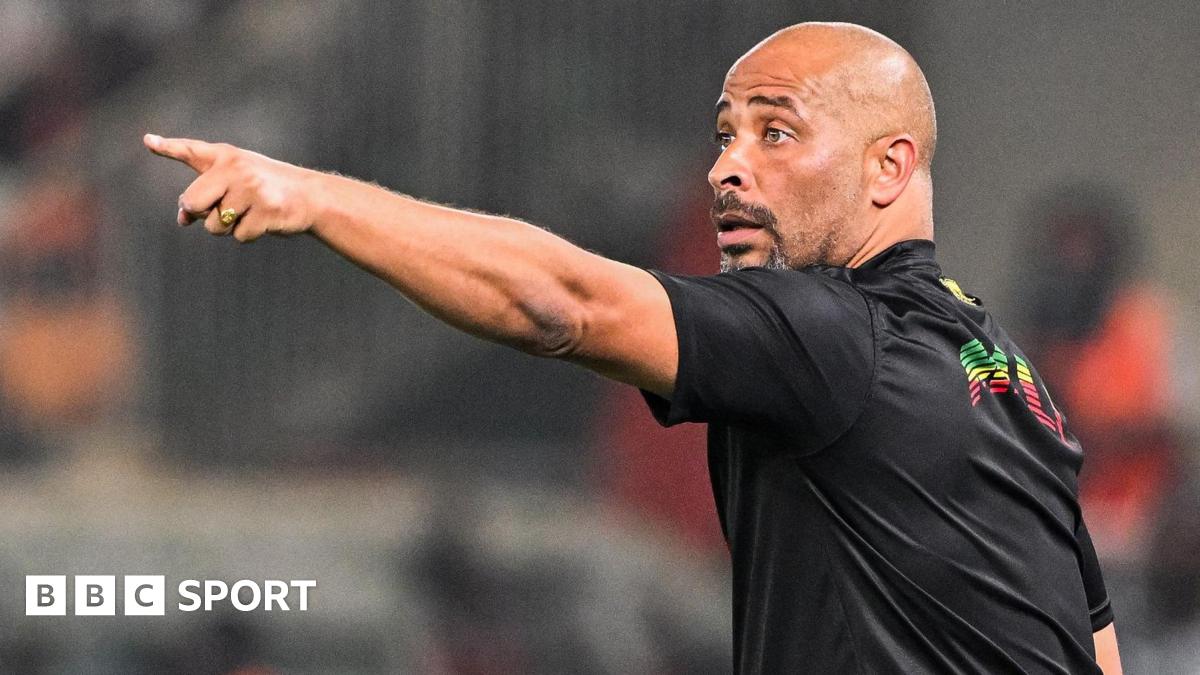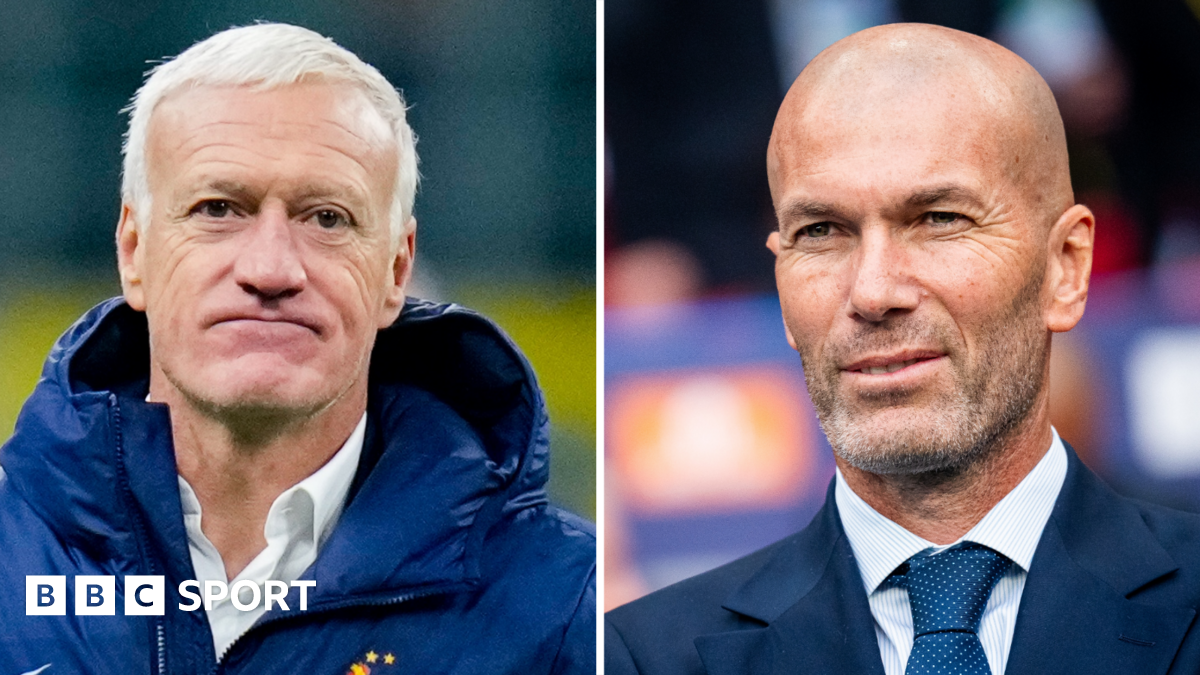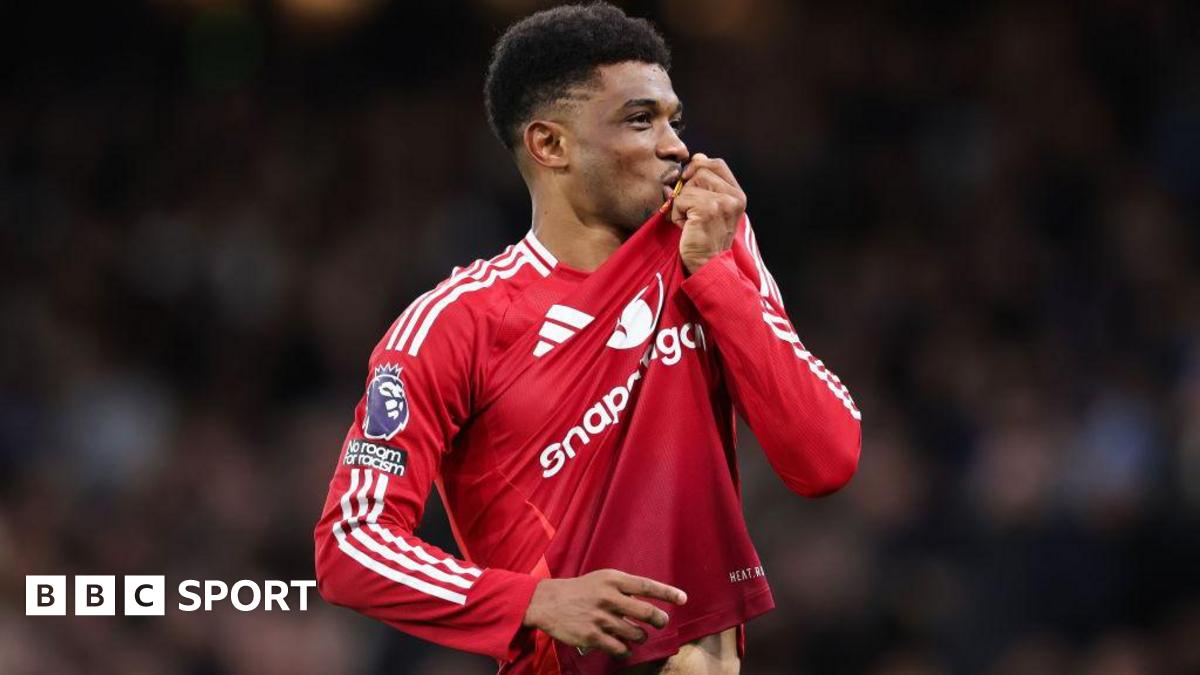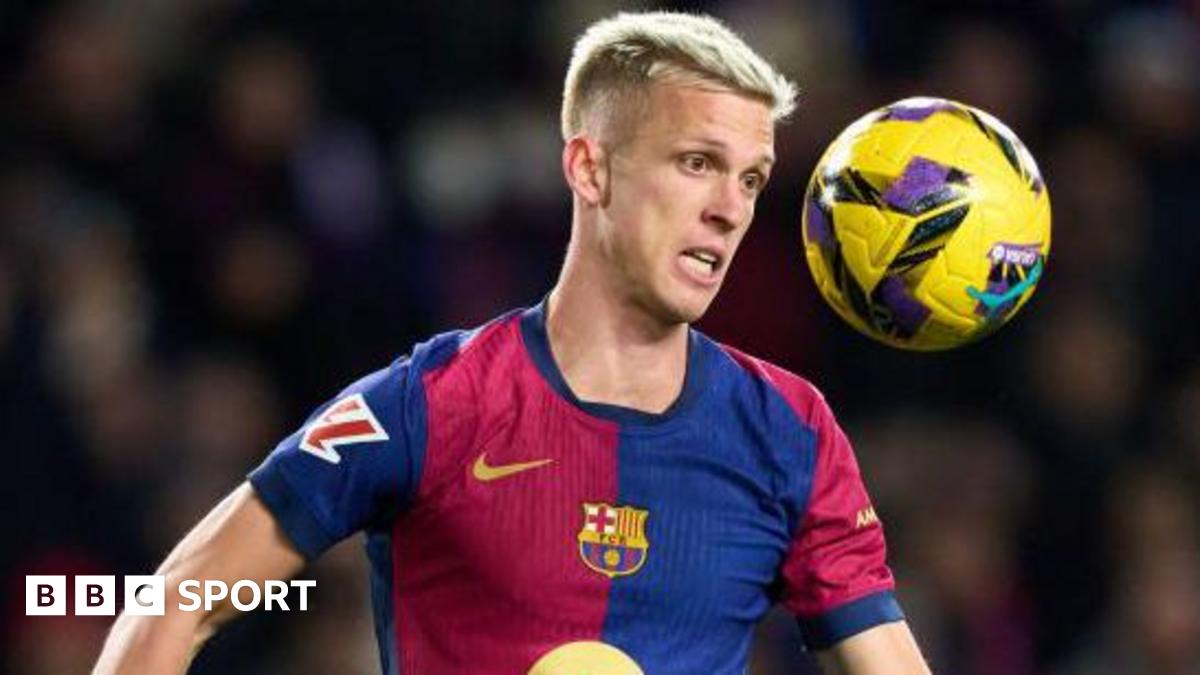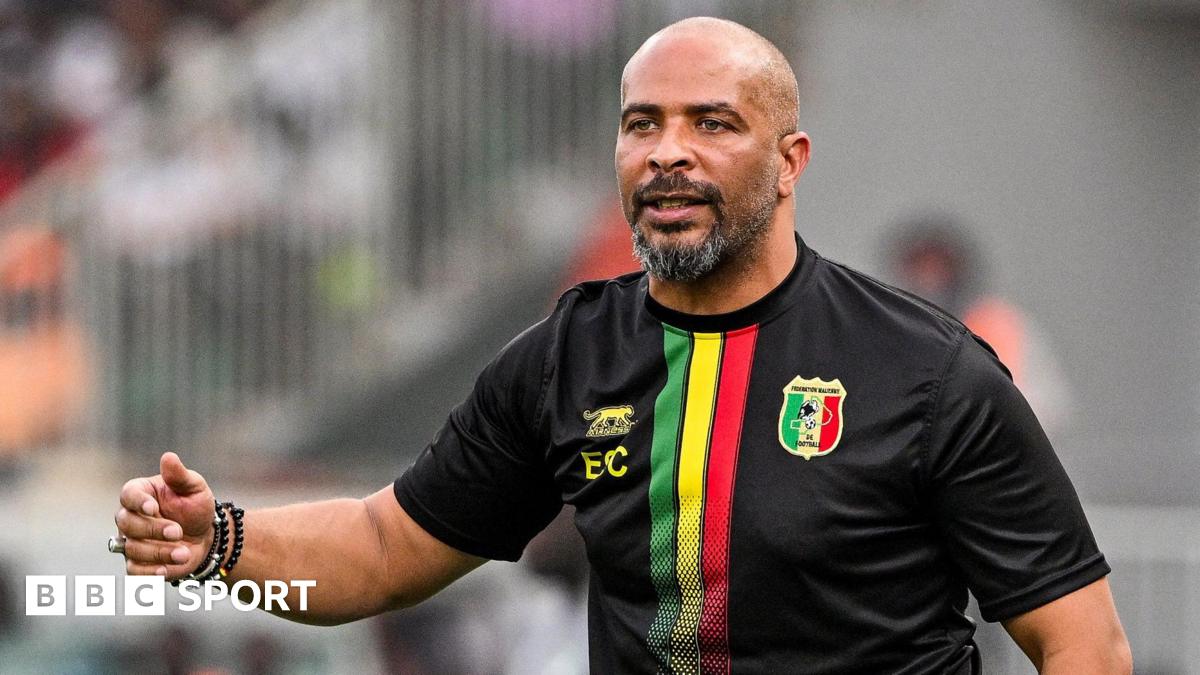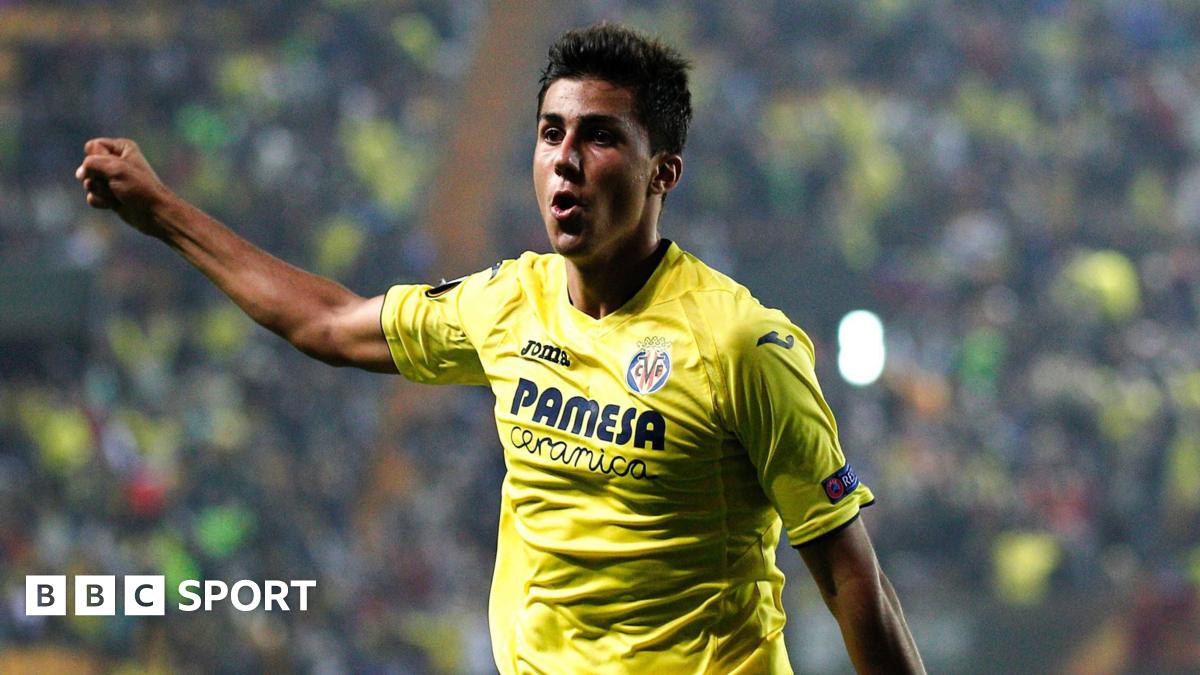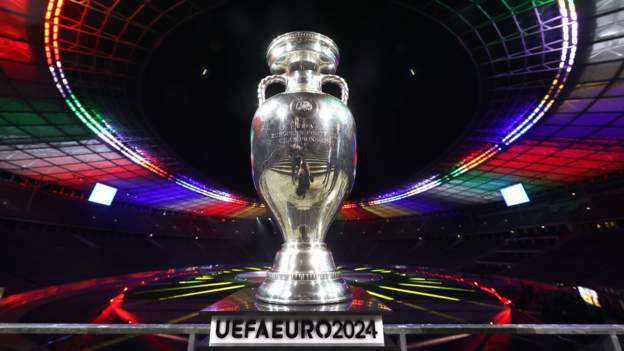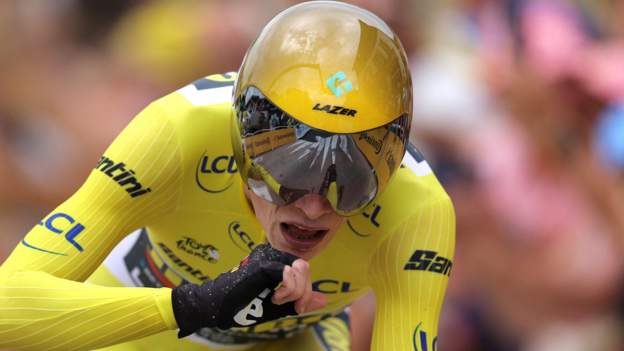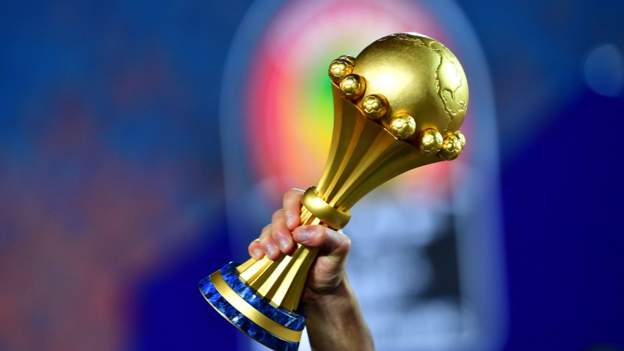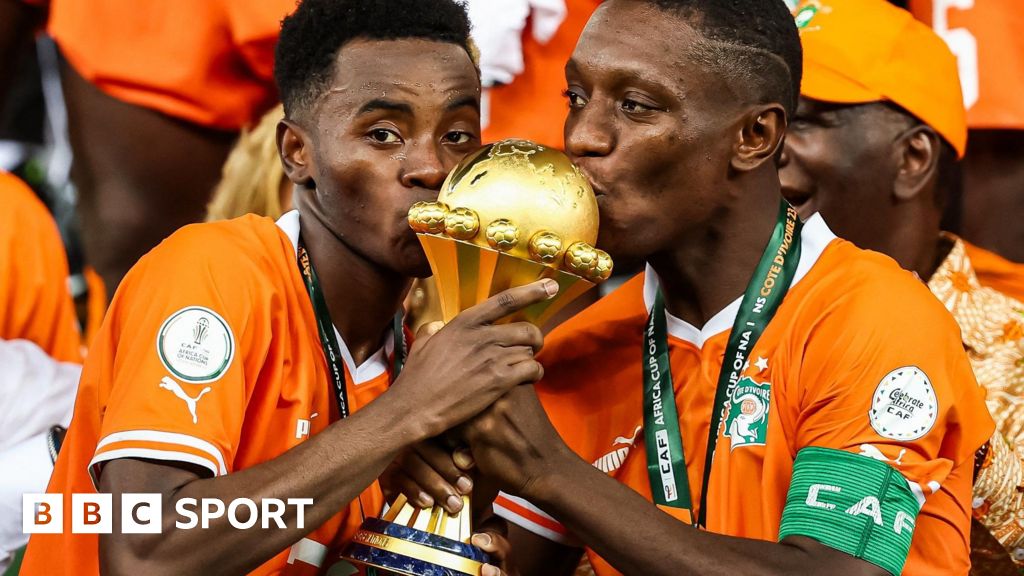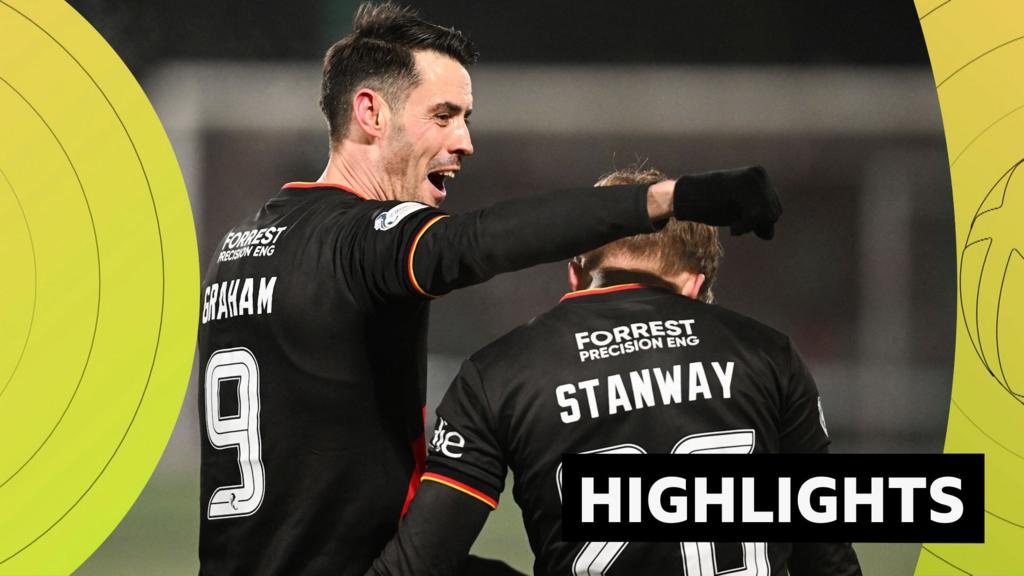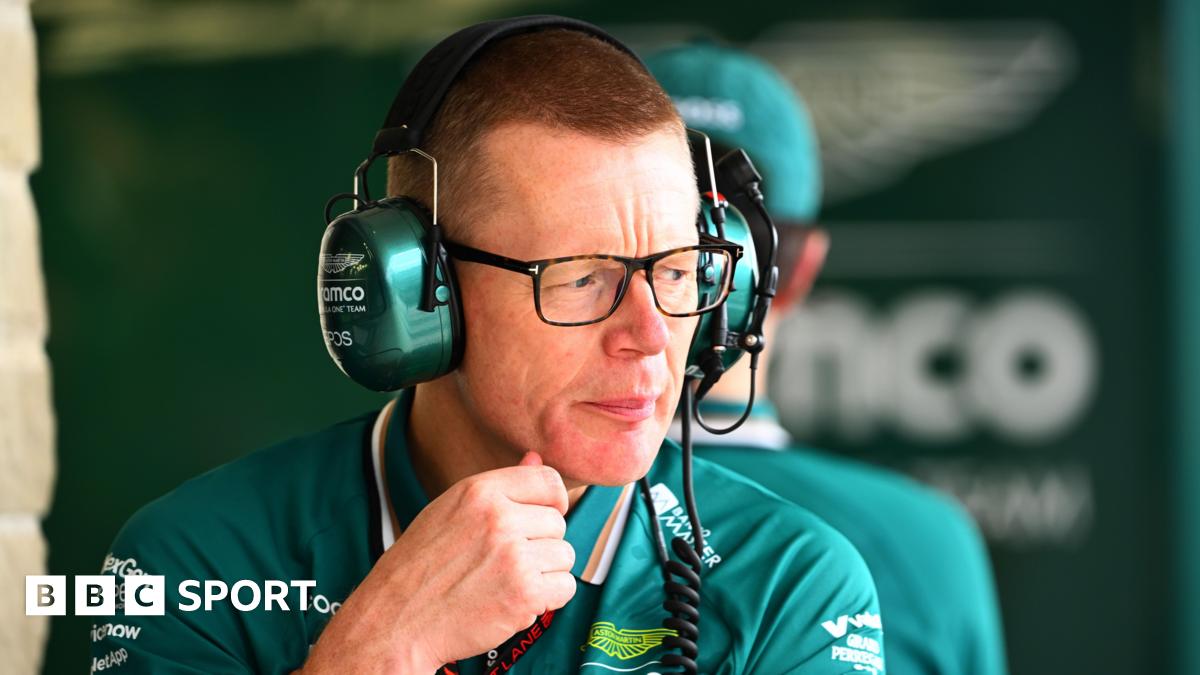Teams at Euro 2024 will be expected to travel to group-stage matches by coach or train instead of flying, to reduce their carbon impact.
European football governing body Uefa says it wants next summer’s tournament in Germany to be “the most sustainable European Championship of all time”.
Group games have been regionalised to favour travel by land.
Fans will also be offered discounted long-distance train tickets and free access to local public transport.
Flights produce greenhouse gases – mainly carbon dioxide (CO2) – from burning fuel. These gases contribute to climate change.
Uefa hopes to discourage short-haul flights during the group stage by dividing fixtures into three clusters in the north, west and south of the country, meaning travel by rail or road is more practical.
That may change should teams progress through to a knockout game at the other end of the country.
The distance between the most northerly host city, Hamburg, and the most southerly, Munich, is 380 miles.
The plans form part of Uefa’s environmental, social and governance strategy, featuring measures to tackle discrimination and promote health and wellbeing.
“This is our chance to lead by example by delivering the tournament to the highest sustainability standards,” said Uefa director for social and environmental sustainability Michele Uva.
Systems introduced to combat abuse
A monitoring and reporting system will also be introduced to try and tackle instances of online abuse of players.
In July 2021, England players Marcus Rashford, Jadon Sancho and Bukayo Saka were racially abused online after the Euro 2020 final defeat by Italy.
The UK Football Policing Unit received 600 reports of racist comments sent to England’s black players after the defeat and judged 207 to be criminal.
A study last year by world governing body Fifa and players’ union Fifpro also revealed more than 50% of players who played in the semi-finals and final of Euro 2020 and the 2022 Africa Cup of Nations received some kind of abuse online.
A rapid response mechanism to identify instances of discrimination inside stadiums will also be implemented.
“Euro 2024 is intended to be a football festival for all fans, with a focus on sport and bringing together people from all over Europe. We want to show ourselves as a modern, open country with a diverse society,” said German federal minister of the interior and sports Nancy Faeser.
“We want to use football as a unifying force to help combat racism and discrimination in sport as well as in other sectors.”

